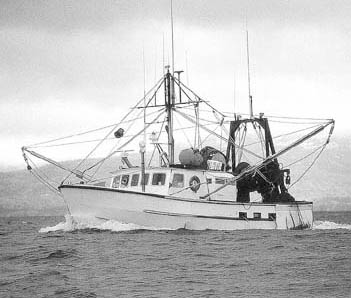Archives
Subscriptions
Advertising
Table of Contents
Editorial:
Regulation Without Representation.............2
Story of an Old Fisherman......................7
Sea Scallop Opening.........................8
Letter to the Editor.......10
Hunting Ethics..............11
Snowe Urges Extension of Comment Period.....12
Retraining Program.......13
New Business...............14
Meeting Notice.............15
Southwest Harbor Waterfront Tax Increase.......................16
Property Tax Meeting.......................17
E-Schemes &
E-Scams.......................18
DMR Prohibits Salmon Racks as Bait................20
Congress Gives Final Approval.....................21
NOAA Seeks Comments.....................22
NOAA Announces New Permit Provider..........24
Urchin Enhancement a Pioneering Effort.......26
Christmas, Two Scenes........................28
Music Review..............29
Classifieds....................30
MANAGING EDITOR
Bill Crowe
LAYOUT & DESIGN
Lance Lobo
TYPESETTING
Roberta Lobo
STAFF WRITERS
Bernice Johnson
Paul Molyneaux
CONTRIBUTING WRITERS
Kittridge Johnson
Mike Crowe
Lee S. Wilbur
SALES MANAGER
Bill Crowe
|
|
Dazed At Sea
by Paul Molyneaux
| |
Coming to terms with what is happening, above and below the waves, has become an increasingly frustrating experience for fishermen, scientists, fisheries regulators, and an American public that wants some assurance that the nation's marine resources are being protected. All participants arguing the issues, including the National Marine Fisheries Service (NMFS), admit there is a dire need for better science. Nonetheless, managers must rely on the "best available science" to guide their decisions.
"You can make the numbers say anything you want...We landed 798 metric tons of cod and left the other 3,300 out there dead."
"Best available science. Those are the three scariest words a fisherman can hear these days," said Proctor Wells, president of the Maine Fishermen's Cooperative Association.
|
 |
|
While fishermen struggle to cope with a barrage of regulations, which they often feel have no bearing on reality, consumers are trying to make sense out of an endless stream of fisheries information and misinformation coming at them from all quarters. After more than 30 years of declining groundfish landings, and recent extreme measures to conserve stocks, many fishing families are feeling as much stress as the resources.
|
The closing of 5,000 square miles of Georges Bank, 1,000 square miles in the Gulf of Maine, rolling closures that put another 900 square miles of fishing area off limits and reductions in days-at-sea, may be beginning to pay off however, and for those fishermen who can survive the current situation, the future looks promising.
Haddock stocks are reboundin
continue
|
|
|

